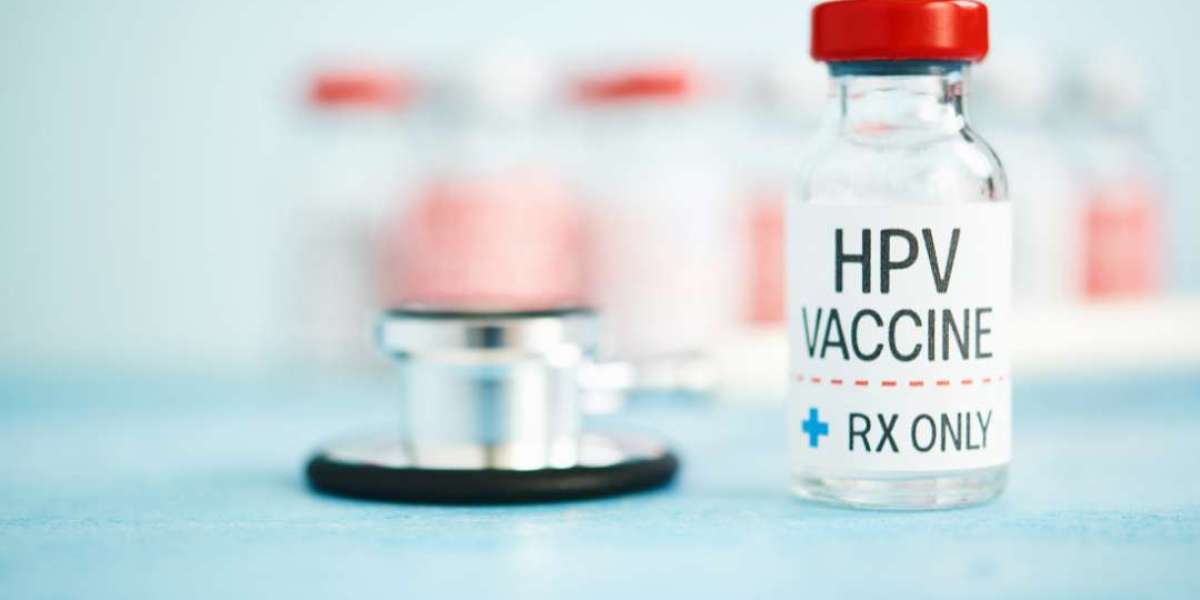A frequently asked question is: How many doses of the HPV vaccine are needed, and when should they be given?
Whether you're a parent safeguarding your child’s future, a young adult catching up on vaccinations, or a healthcare provider staying informed, this comprehensive guide covers everything you need to know about the HPV vaccine dosing schedule.
Trusted wellness centers like Sneh IVF, known as the best IVF center in Ahmedabad, also offer expert counseling on HPV vaccination and reproductive health.
What Is the HPV Vaccine?
The HPV vaccine protects against the most dangerous strains of Human Papillomavirus—particularly HPV types 16 and 18, which cause around 70% of cervical cancer cases. It also shields against other high-risk HPV strains linked to genital warts and cancers of the anus, penis, vulva, and throat.
While three HPV vaccines exist globally, Gardasil 9 is the most widely used today. It provides protection against nine HPV types and is approved for both males and females.
Why Is the HPV Vaccine Important?
HPV can infect anyone who is sexually active, often without causing symptoms. While many infections clear up on their own, others can lead to cancer years later.
According to the CDC, HPV is responsible for:
- Nearly all cervical cancers
- Around 90% of anal cancers
- Over 60% of penile cancers
- Approximately 70% of throat (oropharyngeal) cancers
The vaccine is most effective when given before exposure to the virus—making early vaccination a vital step in cancer prevention.
That’s why healthcare professionals at top fertility centers like Sneh IVF strongly advocate for HPV vaccination in young boys and girls to support lifelong reproductive wellness.
How Many Doses of the HPV Vaccine Are Required?
The number of doses depends on your age at the time of your first shot and certain medical conditions.
1. Ages 9 to 14: Two Doses
Young people in this age group only need two doses, thanks to their stronger immune response.
First dose: Anytime between ages 9–14
Second dose: 6–12 months after the first
Note: If the second dose is given less than 5 months after the first, a third dose is recommended.
Most pediatricians suggest starting the vaccine series around ages 11 or 12, alongside other routine vaccines like Tdap and meningococcal.
2. Ages 15 to 26: Three Doses
Older teens and young adults need three doses for full protection.
First dose: At any time after age 15
Second dose: 1–2 months after the first
Third dose: 6 months after the first
This 0, 1–2, and 6-month schedule ensures long-term immunity.
In cities like Ahmedabad, where reproductive health services are evolving rapidly, centers like Sneh IVF often guide young adults through preventive care like the HPV vaccine.
3. Ages 27 to 45: Based on Individual Risk (Three Doses)
People in this age range can also receive the vaccine, though it's not universally recommended. Many may have already been exposed to HPV.
The CDC advises shared decision-making between the patient and provider, considering factors like sexual history and risk of future exposure.
If recommended, this group receives the same three-dose schedule: 0, 1–2, and 6 months.
Special Considerations
Some individuals may require three doses regardless of age, including:
- People with weakened immune systems
- Individuals with autoimmune conditions
- Organ transplant recipients
These groups may need the extra dose to build sufficient immunity.
What If You Miss a Dose?
No worries—you don't need to restart the series. Just continue from where you left off. Still, sticking to the recommended schedule ensures the best protection.
Already Had HPV? Should You Still Get Vaccinated?
Yes. While the vaccine doesn’t treat existing infections, it can protect you from other strains you haven’t encountered. This is especially beneficial for individuals undergoing fertility care, such as those at Sneh IVF, where preventive health is a core part of treatment.
Common Side Effects
The HPV vaccine is extremely safe, with millions of doses given worldwide. Common side effects include:
- Mild pain or swelling at the injection site
- Low-grade fever
- Headache or fatigue
- Dizziness or fainting (mostly in teens—so sitting afterward is advised)
How Effective Is the HPV Vaccine?
Clinical research and real-world data show over 90% effectiveness in preventing infections from targeted HPV types. Countries with high vaccination rates have already seen significant drops in:
- Cervical precancers
- Genital warts
- Other HPV-related conditions
- Early vaccination delivers the best results.
Can Boys and Men Get the HPV Vaccine?
Absolutely. HPV affects all genders and can cause throat, anal, and penile cancers in men, as well as genital warts.
Vaccinating boys not only protects them—it helps prevent the spread of HPV, contributing to overall public health.
At centers like Sneh IVF, HPV vaccination is part of a holistic approach to reproductive wellness for individuals and couples.
Debunking Common Myths
“The vaccine promotes sexual activity.”
- False. Studies show no increase in sexual behavior post-vaccination. The HPV vaccine is about cancer prevention, not lifestyle choices.
“HPV only affects women.”
- Incorrect. Men are also at risk of serious HPV-related cancers and conditions.
“I’m too old for the vaccine to help.”
- Not necessarily. If you're still at risk of exposure, vaccination can offer protection against strains you haven't encountered.
Tips for Parents and Young Adults
- Start early: Begin before age 15 to qualify for the two-dose schedule
- Stick to the timeline: Use reminders to stay on track
- Don’t stress if late: Continue the series, don’t restart
- Ask questions: Talk to a trusted healthcare provider
Conclusion
The HPV vaccine is one of the most effective tools we have to prevent several types of cancer. Understanding how many doses are needed and when to get them helps you and your loved ones stay protected.
Looking for trustworthy guidance? Sneh IVF Center, the No.1 IVF hospital in Ahmedabad, offers not only top-tier fertility care but also expert counseling on HPV vaccination and reproductive health planning.


